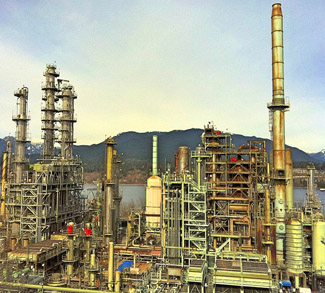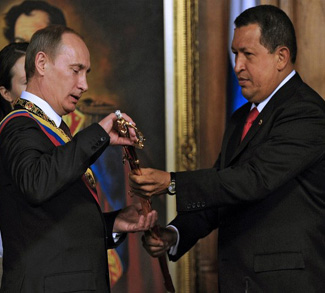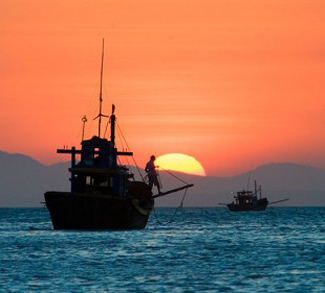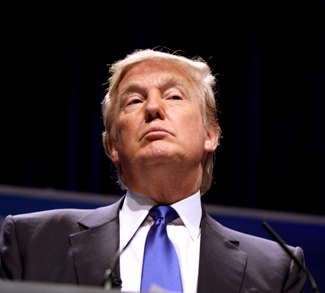It was only a little over a month ago that the world, as well as most Canadians, discovered that Canada was host to the world’s strategic maple-syrup reserve. The confounding theft of $30 million worth of maple-syrup led The Atlantic to expound upon the rationale for this largely unknown government-sanctioned enterprise. In sum, the need to assure that supply of the product will meet its demand is at the crux of the foundational logic. This rationale is similar to that which has spawned the creation of strategic petroleum reserves (SPR) the world over. Yet Canada is a nation without a SPR, and petroleum, unlike maple-syrup, lacks a viable substitute in the event of a significant shortage.
The Arab oil embargo of 1973-74, which saw crude oil prices quadruple, made it acutely evident that Western economies, and their people’s way of life, depend entirely upon the security of petroleum supply at a reasonable and anticipated price. The devastating economic and psychological impact of the embargo prompted many countries to create SPRs, which are simply stockpiles of various petroleum products to be released in the event of crises and/or significant shortages. Ever cautious, Switzerland has had a SPR since 1940. In March 2001, the International Energy Agency (IEA) took the prudent step of mandating that all of its twenty-eight members possess a ninety day reserve. Unfortunately, this mandate included an exemption for the four IEA members that are net-exporters of energy. Denmark and the United Kingdom, as two of the exempted four, subsequently instituted their own reserves in compliance with a separate European Union (EU) mandate for all of its respective members. Canada and Norway are the only IEA members without a reserve. However, Canada, unlike Norway, is in fact unable to supply the entirety of its population with domestic petroleum products under normal circumstances, let alone in the event of a significant crisis.
The statement that energy-abundant Canada is unable to meet the petroleum demands of its own citizens in normal circumstances may seem shocking, but the truth behind it is widely accepted. Richard Gilbert of the Globe and Mail suggested in 2010 that Quebec is particularly susceptible to an “oil shock,” as the province imports 90% of its crude oil from foreign sources, with Algeria at the top of the list. The story is similar for the rest of Eastern Canada.
The reason for this is the logistics of the energy industry. Due to economic forces and treaty obligations under NAFTA, the pipelines of the Canadian energy industry run largely north-south. In turn, there is no viable manner by which to transport the vast energy supplies of Western Canada to refineries and subsequently consumers in Eastern Canada.
Under normal circumstances this would not be an issue and, as it is the most economical strategy for supplying Canadian demand, it should and will continue. However, ensuring supply under normal circumstances is not what a SPR is for, and simply stating that current supply meets current demand is thus not a sufficient response to the lack of an SPR in Canada. Yet, this is the exact myopic response posted to the website of Natural Resources Canada (NRC) in 2009:
The cost of establishing, maintaining and administering such a reserve, and the logistical difficulties inherent in the transportation of oil outweigh the benefits of creating a national strategic petroleum reserve…
Commercial inventories of both crude oil and refined oil products are adequate for the winter season.
This justification for inaction is wholly inadequate. It is uneconomical for any country to institute a SPR, yet all the countries of the IEA who would be unable to adequately supply their citizens’ petroleum demands in the event of a crisis, as well as others who could, such as Iran and Russia, maintain one. It appears that other countries view the issue in security, rather than economic, terms. Canada, to the detriment of its citizens, does not.
Despite its status as a net exporter, a large portion of Canada is no different from other countries of the IEA in terms of their reliance on foreign sources of petroleum, thus there is no reason why Canada should not follow a similar policy. The government’s strategy of quantifying the “benefits” of a SPR in relation to the cost of its creation is not included in the NRC statement, but as Gordon Laxer of the Parkland Institute has argued, it is difficult to ascertain how, in a country with devastatingly cold winters, the benefit of ensuring that all citizens have the capacity to adequately heat their homes can be “outweighed.”
Joseph Doucet of the University of Alberta did attempt to quantify the costs associated with the creation of a SPR, estimating it could be as high as $14 billion. This, however, would assume a price of $200 per barrel of oil (roughly 61 million barrels is needed for a ninety day supply) and a storage cost of $27.30 per barrel. Oil is not anywhere near $200 at present, and Doucet’s estimates had a price range for storage beginning at a mere $3.50. Regardless, the cost will not be insignficant, but using an economic set of scales to measure its merit is not the correct test for a SPR.
Economic security, or harm mitigation in the event of an economic “oil shock,” is an important aspect of a SPR, as it represents the maintenance of transport, heating, and health infrastructure, and, in a particularly extreme event that threatens national security, military operational capacity. It is for these reasons that those countries which lack capacity to deliver to their citizens the full sum of their petroleum demand have instituted SPRs, and it is against these concerns that its creation must be weighed.
Indeed, there is little to differentiate the rationale of defence spending and the institution of a SPR. It can be said that neither has significant economic benefit (although both do have some). Yet both of them serve the purpose of ensuring future national security in the event that they are required. As the Arab Spring, Hurricane Katrina, Iraq War, the 2002-03 workers strike in Venezuela, and the Iran-Iraq war of 1980 all have shown, supply interruptions can come in many forms and are not easily predicted or managed. The problem of securing supply is compounded when foreign sources in perpetually unstable regions are primary suppliers, as is the case in Eastern Canada. Thus, without a SPR, the security of citizens in Eastern Canada, and indeed Canada as a whole, is put at risk unnececarilly, and this alone should warrant its creation.
The opinions, beliefs, and viewpoints expressed by the authors are theirs alone and don’t reflect any official position of Geopoliticalmonitor.com.




